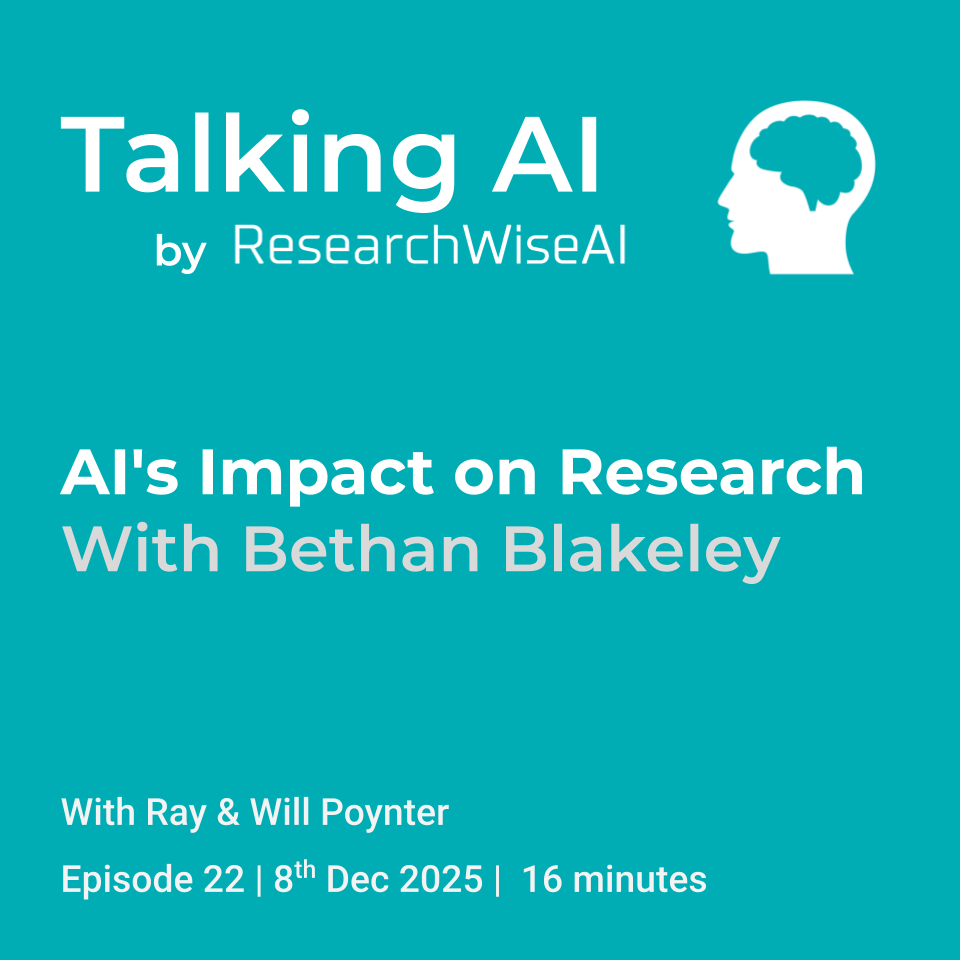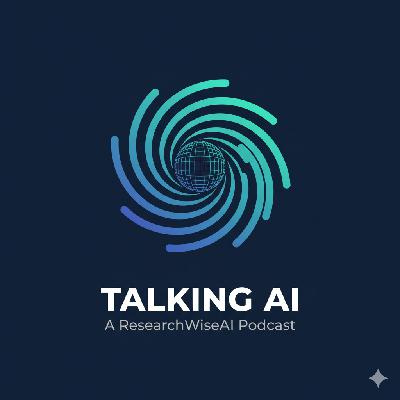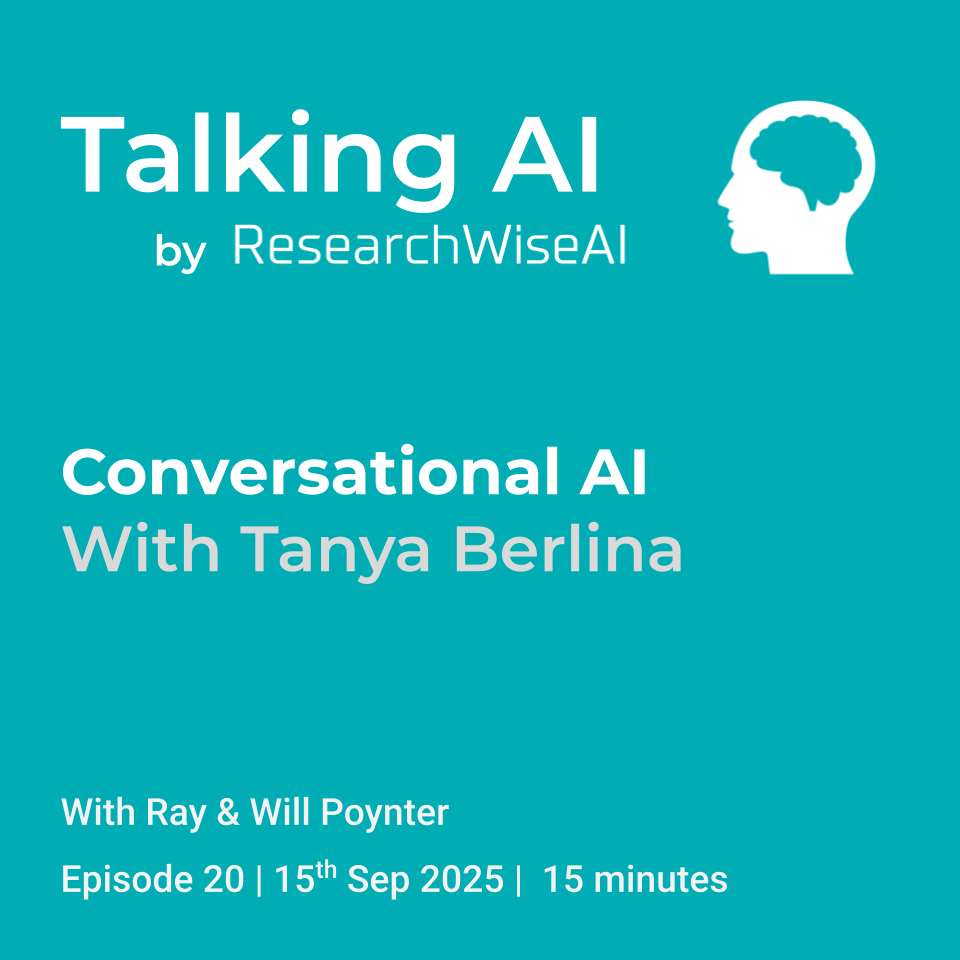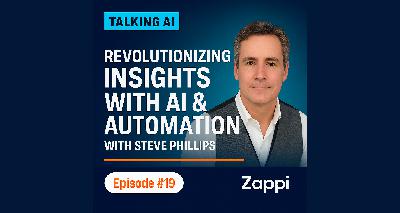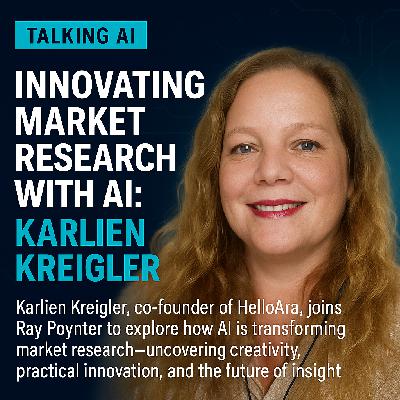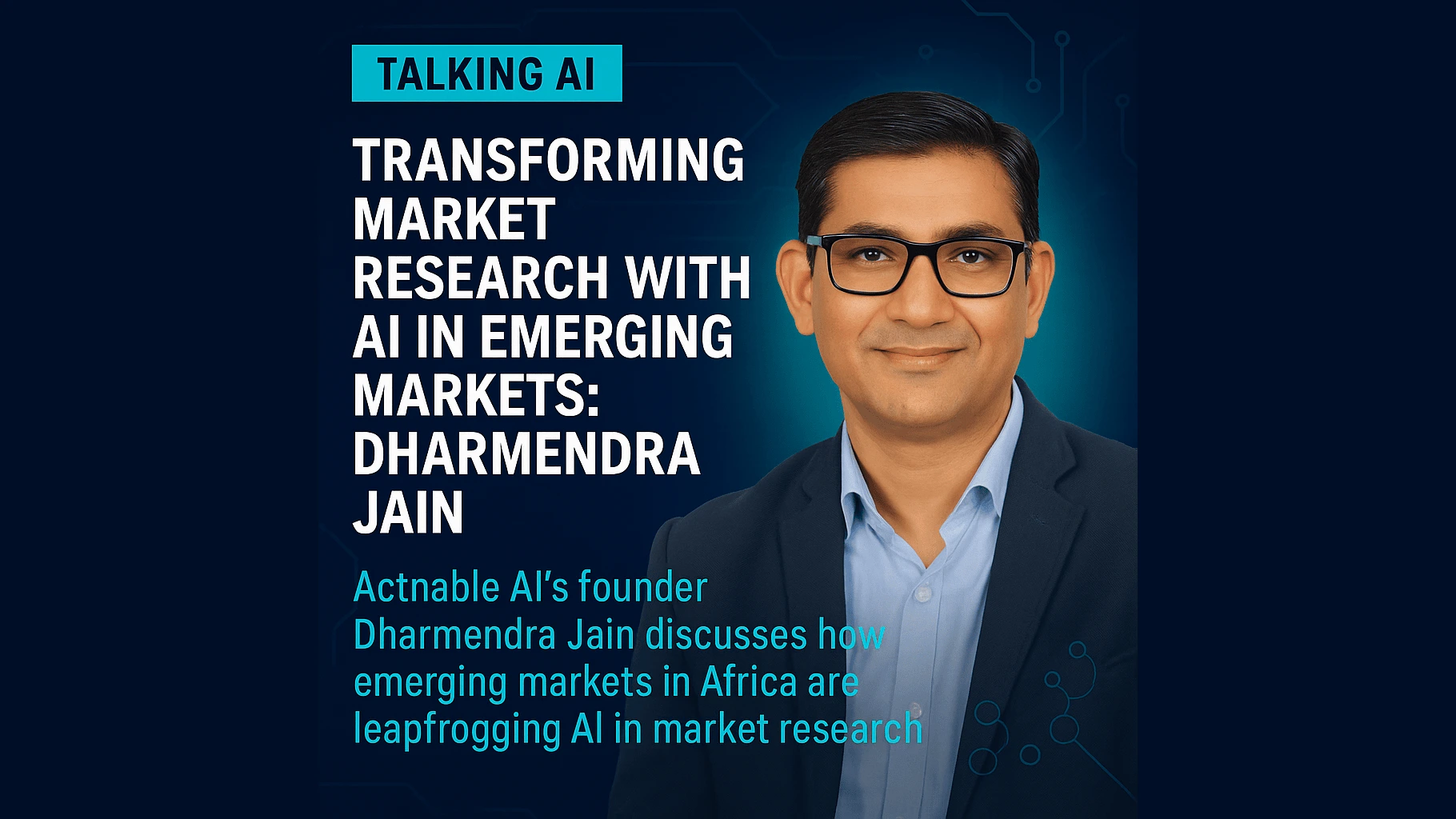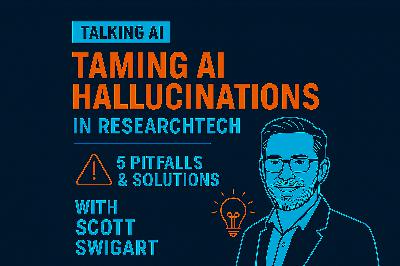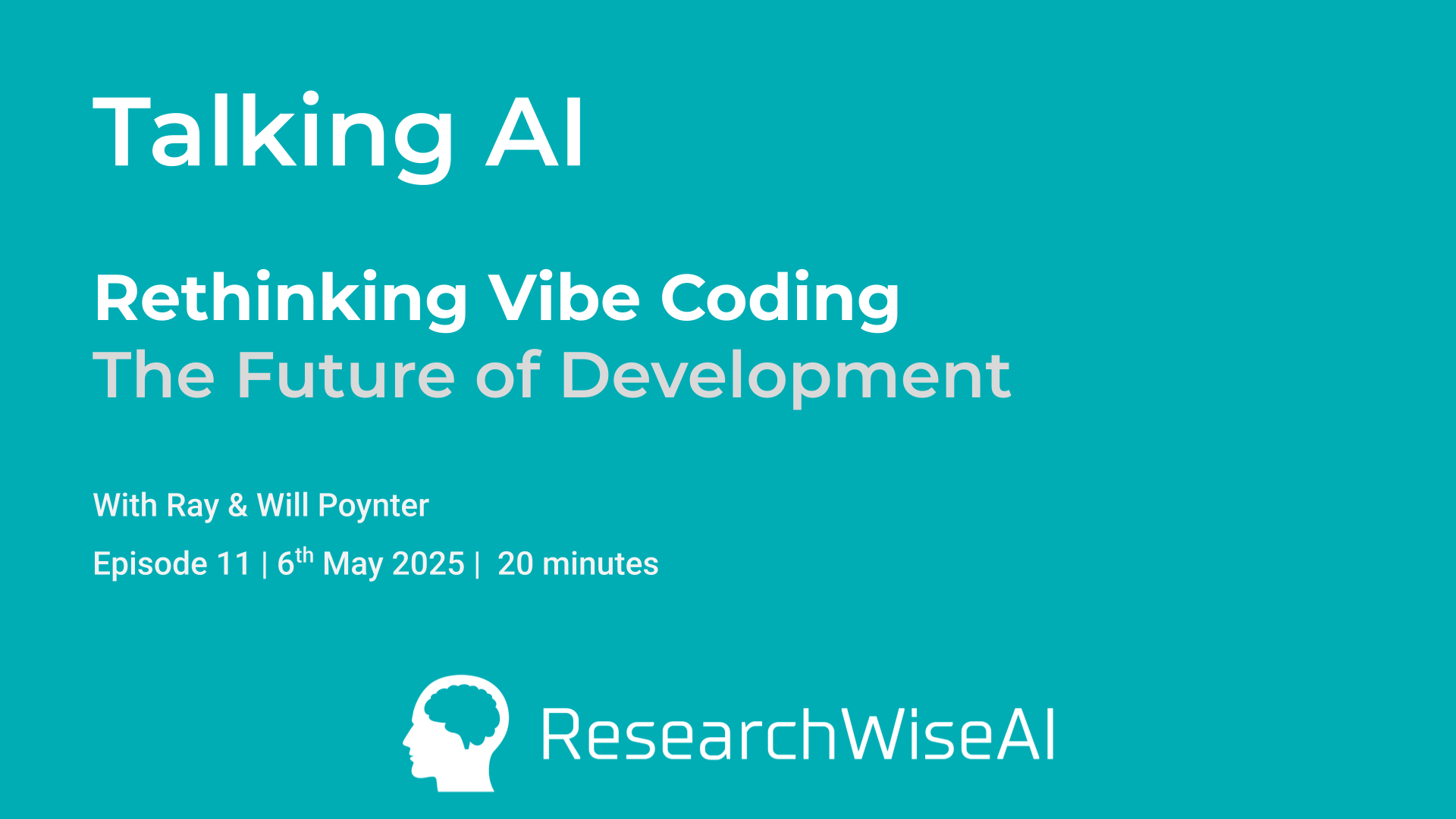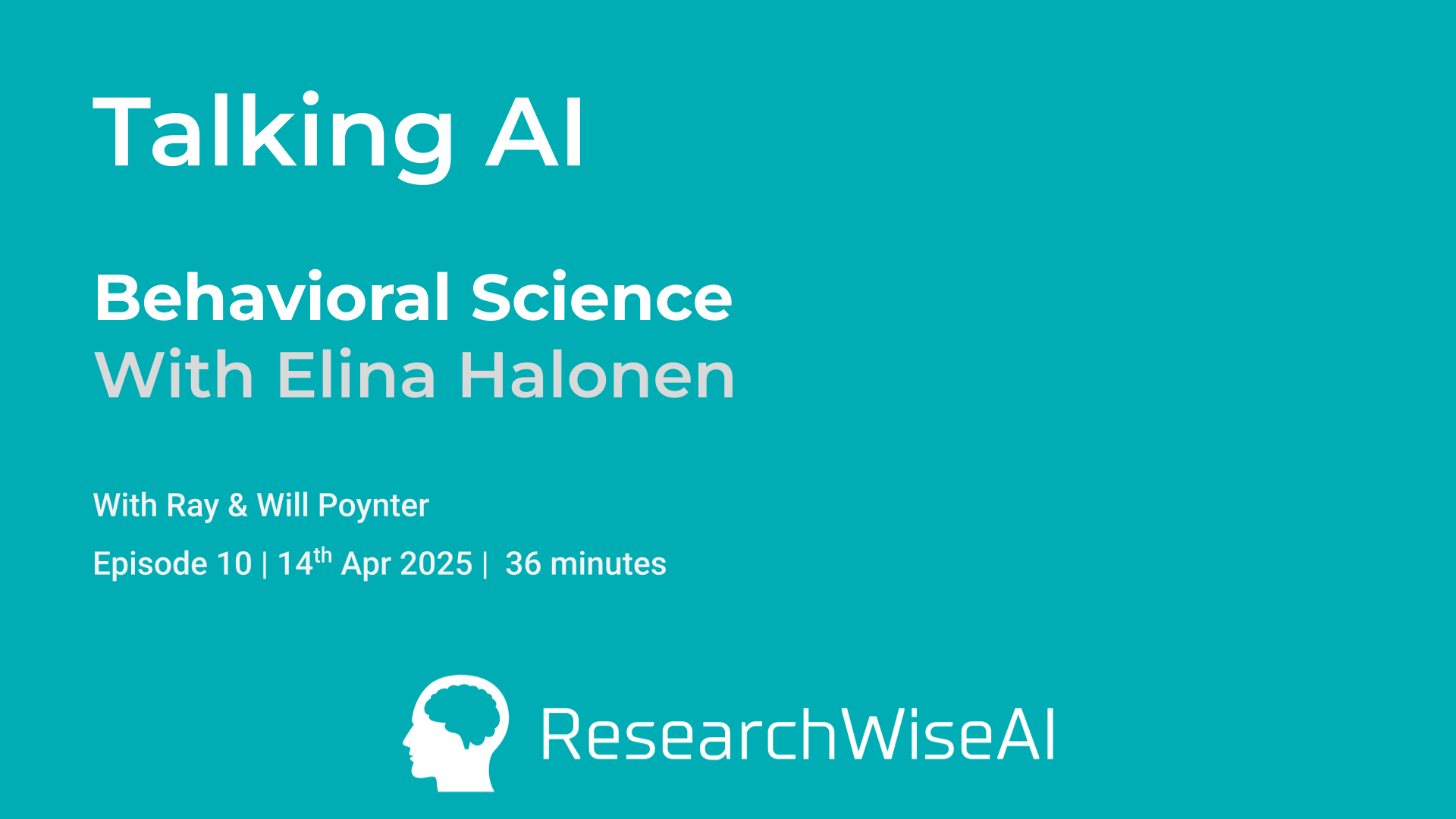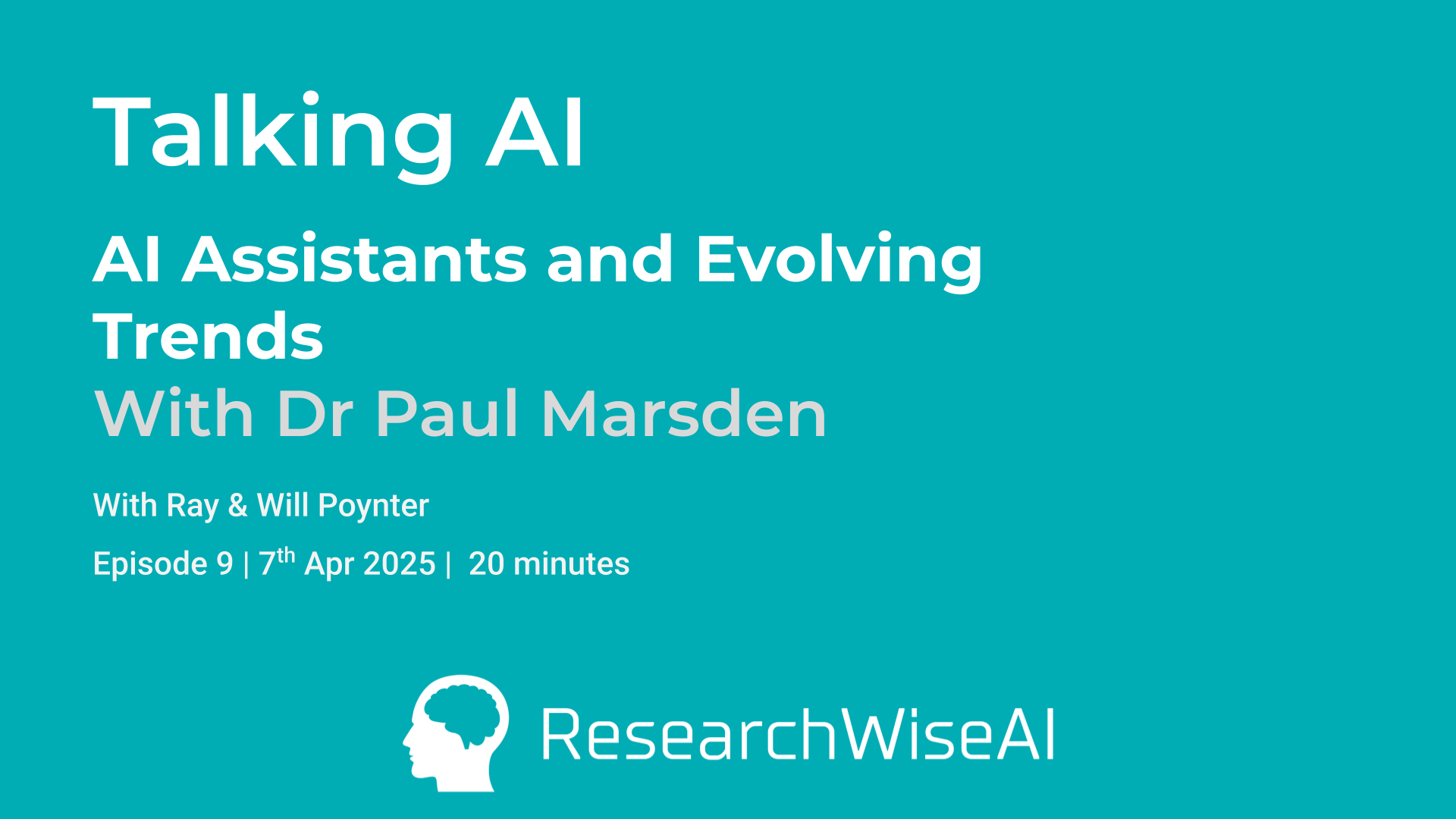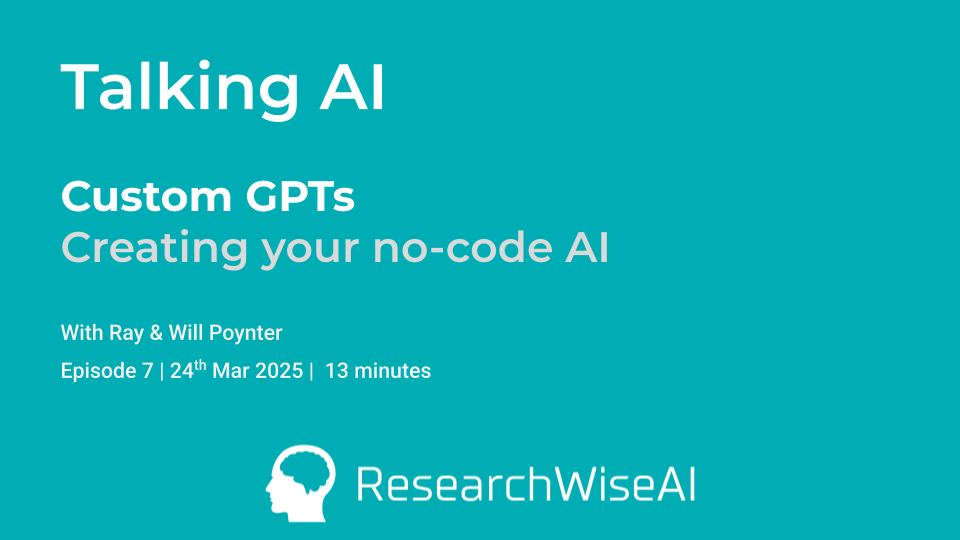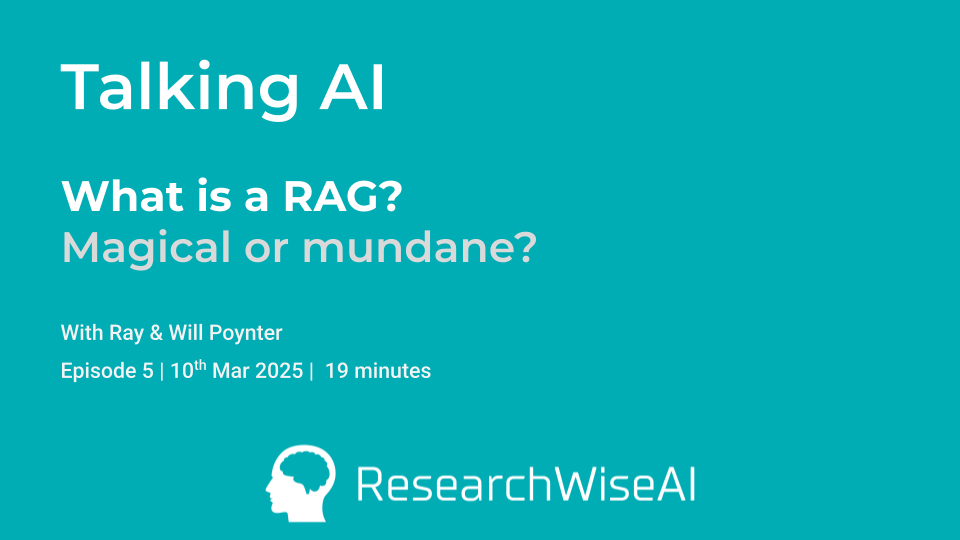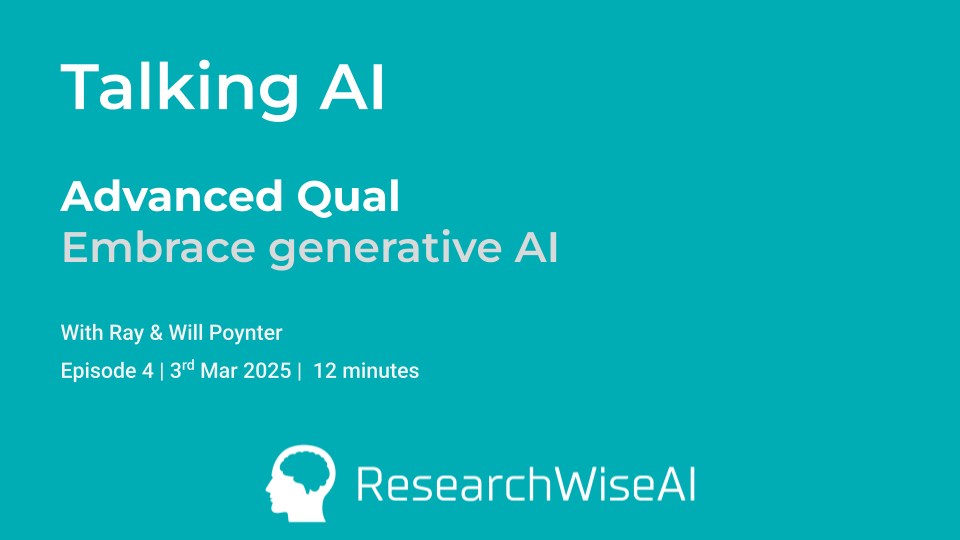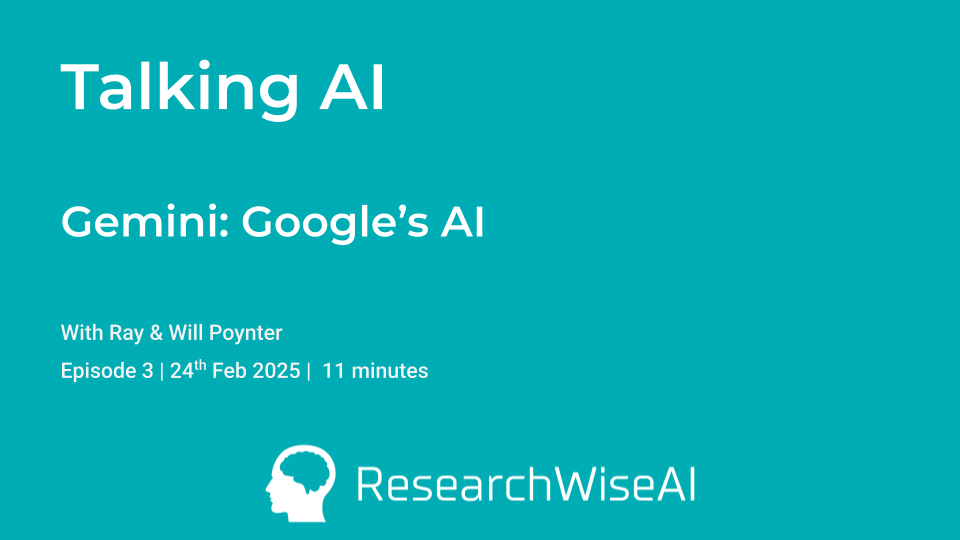Discover Talking AI in Market Research
Talking AI in Market Research

Talking AI in Market Research
Author: ResearchWiseAI
Subscribed: 1Played: 12Subscribe
Share
Description
Will and Ray Poynter, the founders of ResearchWiseAI, discuss all things relating to Artificial Intelligence (AI) and market research. Our aim is help market research professionals keep up to date with the dizzying world of AI.
22 Episodes
Reverse
Bethan Blakeley, CX and Research Manager at SimpliSafe, discusses her transition from agency to client-side research, cutting through AI hype, and why stakeholder activation matters more than perfect methodology.
Heineken’s Tony Costella joins Ray Poynter to unpack how AI, data, and people reshape marketing and sales—moving from one-off tests to always-on insight and real business value.
Ray Poynter sits down with Tanya Berlina from Yasna AI to explore how conversational AI is transforming qualitative research-covering practical tips, future trends, multilingual projects, and more.
Zappi founder Steve Phillips joins Ray Poynter to reveal how AI and automation are reshaping market research, from rapid testing to actionable, always-on insights. Discover what the future holds for insights teams in an AI-first world.
Karlien Kriegler, co-founder of Hello Ara, joins Ray Poynter to explore how AI is transforming market research, uncovering creativity, practical innovation, and the future of insight discovery.
Join Ray Poynter and Actnable AI’s founder Dharmendra Jain as they explore how emerging markets in Africa are leapfrogging AI in market research—from multilingual translation to conversational surveys.
Discover how Laura Quinn of PJ Quinn leverages AI to accelerate and deepen qualitative pharmaceutical research insights.
Discover how AI can supercharge qualitative research depth and quality—compare general LLMs versus specialized platforms with Reveal CEO Alok Jain.
Discover the five hidden sources of AI hallucinations in research technology and learn actionable, human-augmented strategies from expert Scott Swigart.
Host Ray Poynter sits down with cultural insights consultant Ramona Daniel to explore how she uses ChatGPT, Claude, Gemini, Perplexity, and NotebookLM to fill knowledge gaps, surface hidden patterns in data, and amplify her independent research practice.
Ray and Will Poynter demystify the new Deep Research mode in leading LLMs. Learn how ChatGPT, Gemini and Perplexity run multi-step web searches, analyse 30 + sources and return citation-rich briefings in minutes—plus tips to verify sources, avoid hallucinations and automate recurring insight reports.
Explore how AI-driven 'Vibe Coding' is transforming software development workflows. In this Talking AI episode, co-founders Ray and Will Poynter discuss AI pair programming, productivity gains, tooling recommendations, and the shifting roles of coders in the age of generative AI.
Discover groundbreaking insights on AI, behavioral science, and LLMs with Elina Halonen on Talking AI. Learn how culture, ethics, and strategy drive digital transformation.
Tune in to Talking AI with host Ray and guest Paul Marsden as they explore breakthrough AI trends, future tech innovations, and digital transformation strategies in this must-hear episode.
Join Ray Poynter and Will Poynter from ResearchWiseAI as they explore AI personas and synthetic data with Andrew Jeavons of Signoi. Discover how these cutting-edge technologies are transforming market research, concept testing, and image analysis while addressing privacy and data security concerns. Gain insights into quantitative semiotics, the challenges of digital twins, and the future of consumer research in a rapidly evolving AI landscape.
This week, Ray and Will dive into the growing trend of Custom GPTs—tailored AI assistants that can be created with minimal coding. They explore how businesses are using them to streamline processes, enhance market research, and share practical tips on building your own.
This week, Ray and Will tackle that is one of the most discussed of the last few years, synthetic data. They will discuss the different types of synthetic data, how they are generated, and how they are used.
In this episode, Ray and Will discuss the basics of RAG (Retrieval Augmented Generation). What is RAG? What is a RAG AI good for? And why are some people dismissive of it.
In our fourth installment, Ray and Will discuss how to embrace generative AI to boost your qualitative analysis. Ray shares his experience with the latest tools and techniques coupled with his 45 years experience in the field of qualitative analysis.
What is Google's answer to ChatGPT? Ray and Will discuss Google Gemini and its implications for the market research AI landscape.



